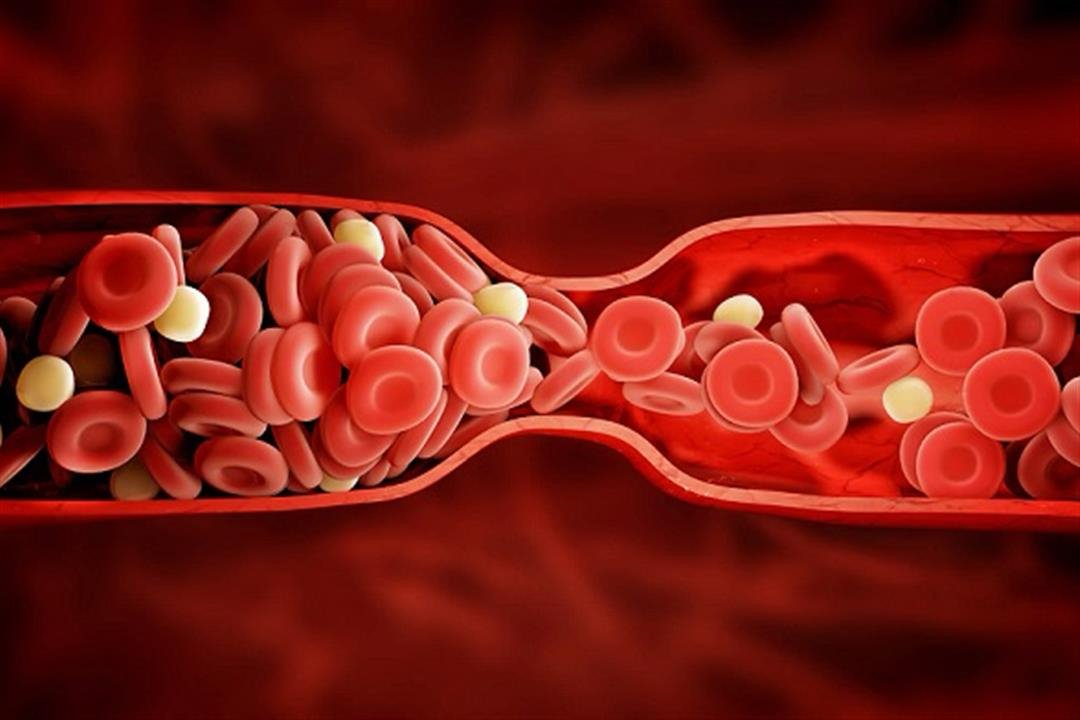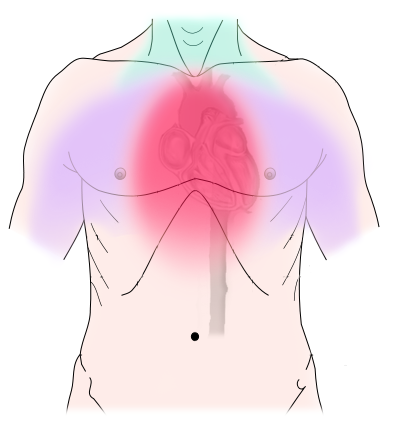Blood viscosity, often referred to as the “thickness” or “stickiness” of blood, plays a crucial role in the body’s circulatory system. Proper blood flow is essential for the delivery of oxygen and nutrients to tissues, and any disruptions can lead to serious health complications. High blood viscosity can be a hidden danger, contributing to cardiovascular diseases, strokes, and other health concerns. This article delves into the importance of blood viscosity, its causes, and how to manage it for optimal health.
What is Blood Viscosity?

Blood viscosity refers to the resistance of blood to flow through the blood vessels. It is determined by several factors, including the concentration of red blood cells, plasma proteins, and lipids (fats). Think of it as the thickness of a fluid; water has low viscosity, while honey has high viscosity. Similarly, blood with a high viscosity has difficulty flowing smoothly through the veins and arteries.
The viscosity of blood affects the efficiency with which the heart can pump it throughout the body. High blood viscosity increases the workload on the heart and can impair circulation, leading to increased risk of conditions such as hypertension, heart attack, and stroke. On the other hand, low blood viscosity can result in excessive bleeding and poor oxygen delivery to tissues.
Causes of High Blood Viscosity
There are several factors that can contribute to an increase in blood viscosity. Understanding these factors can help in the prevention and management of conditions associated with thickened blood.
1. Dehydration
One of the most common causes of high blood viscosity is dehydration. When the body loses more water than it takes in, the blood becomes more concentrated, leading to thicker blood. Dehydration can occur due to various reasons, including inadequate fluid intake, excessive sweating, or illnesses that cause vomiting or diarrhea.
2. High Red Blood Cell Count
A high concentration of red blood cells, a condition known as polycythemia, can significantly increase blood viscosity. This may be due to genetic factors, living at high altitudes (where the body compensates for lower oxygen levels by producing more red blood cells), or certain medical conditions.
3. High Cholesterol and Lipids
Elevated levels of cholesterol and triglycerides (types of fats) in the blood can contribute to increased viscosity. These lipids make the blood more resistant to flow, and they can also promote the formation of arterial plaques, further obstructing blood flow.
4. Smoking
Smoking introduces harmful chemicals into the bloodstream, which can damage blood vessels and increase blood viscosity. Smokers often have higher levels of red blood cells as the body compensates for reduced oxygen levels, leading to thicker blood.
5. Chronic Inflammation
Chronic inflammatory conditions, such as rheumatoid arthritis or inflammatory bowel disease, can increase blood viscosity. Inflammation triggers the production of proteins and cells that contribute to blood thickening, making circulation more difficult.
6. Diabetes
Individuals with diabetes often have higher blood viscosity due to elevated blood sugar levels, which increase the stickiness of blood cells. This can contribute to poor circulation and an increased risk of cardiovascular complications.
7. Genetic Conditions
Certain genetic conditions, such as sickle cell anemia or clotting disorders, can affect blood viscosity. In sickle cell anemia, for example, red blood cells are abnormally shaped, causing them to stick together and increase viscosity, leading to impaired blood flow.
Symptoms of High Blood Viscosity
The symptoms of high blood viscosity are often subtle and can be easily mistaken for other conditions. However, early detection and management are crucial to preventing complications. Common symptoms include:
- Fatigue: Thickened blood requires more effort from the heart to circulate, leading to fatigue and lack of energy.
- Dizziness or Lightheadedness: Poor blood circulation can result in dizziness, particularly when standing up quickly.
- Headaches: High blood viscosity can reduce oxygen delivery to the brain, causing headaches.
- Numbness or Tingling: Reduced blood flow to the extremities can cause numbness or tingling sensations in the hands and feet.
- Shortness of Breath: If blood flow is impaired, the body may struggle to deliver enough oxygen to tissues, resulting in difficulty breathing.
- High Blood Pressure: Increased resistance in blood flow can lead to elevated blood pressure.
If left untreated, high blood viscosity can lead to more serious complications, including heart attack, stroke, and deep vein thrombosis.
Managing and Reducing Blood Viscosity
Fortunately, there are several lifestyle changes and medical interventions that can help manage and reduce blood viscosity. By taking steps to improve your overall health, you can reduce the risk of complications associated with thickened blood.
1. Stay Hydrated
One of the simplest ways to maintain healthy blood viscosity is to stay hydrated. Drinking adequate water throughout the day helps to keep the blood thin and flowing smoothly. Aim for at least 8 glasses of water per day, and more if you’re active or living in a hot climate.
2. Exercise Regularly
Regular physical activity can help improve blood circulation and prevent blood from becoming too thick. Aerobic exercises such as walking, jogging, swimming, and cycling can enhance cardiovascular health and promote healthy blood flow. Exercise also helps lower cholesterol levels, which can reduce viscosity.
3. Maintain a Healthy Diet
A diet rich in fruits, vegetables, whole grains, and healthy fats can improve blood viscosity. Foods high in omega-3 fatty acids, such as fatty fish (salmon, mackerel), flaxseeds, and walnuts, can reduce inflammation and lower blood lipid levels. Similarly, foods rich in antioxidants, such as berries and leafy greens, help improve blood vessel function and reduce the risk of clotting.
Avoiding processed foods, excessive sugars, and saturated fats is also key to maintaining healthy blood flow. These foods contribute to inflammation and increase the likelihood of high cholesterol, which can thicken the blood.
4. Quit Smoking
If you smoke, quitting is one of the most effective ways to reduce blood viscosity. Smoking damages blood vessels, increases red blood cell production, and promotes clot formation. By quitting smoking, you can improve your cardiovascular health and reduce your risk of complications related to high blood viscosity.
5. Manage Chronic Conditions
If you have a chronic condition such as diabetes, high cholesterol, or hypertension, it’s important to manage these conditions with the help of a healthcare provider. Controlling blood sugar levels, reducing cholesterol, and keeping blood pressure within a healthy range can help reduce blood viscosity and prevent complications.
6. Consider Blood-Thinning Medications
In some cases, doctors may prescribe blood-thinning medications, such as aspirin or anticoagulants, to help reduce blood viscosity. These medications work by preventing the formation of clots and making it easier for blood to flow through the blood vessels. However, they should only be used under the guidance of a healthcare professional, as they can increase the risk of bleeding.
7. Reduce Inflammation
Chronic inflammation can increase blood viscosity, so it’s important to manage inflammatory conditions effectively. Anti-inflammatory medications, such as NSAIDs (non-steroidal anti-inflammatory drugs), can help reduce inflammation and improve blood flow. Additionally, adopting an anti-inflammatory diet rich in omega-3 fatty acids, antioxidants, and fiber can help reduce inflammation naturally.
When to See a Doctor
If you’re experiencing symptoms of high blood viscosity, it’s important to consult a healthcare provider for a proper diagnosis and treatment plan. Blood tests can determine your red blood cell count, cholesterol levels, and overall blood viscosity. If necessary, your doctor may recommend medications or other interventions to help reduce the risk of complications.
Conclusion: Prioritizing Your Circulatory Health
Blood viscosity plays a vital role in overall circulatory health, and maintaining the right balance is crucial for preventing cardiovascular problems. Understanding the causes and symptoms of high blood viscosity allows for early detection and effective management. By staying hydrated, exercising regularly, eating a balanced diet, and managing underlying conditions, you can reduce the risk of complications and promote healthy blood flow.
For more information on blood viscosity and its impact on health, visit the following scientific resources:
- American Heart Association: Blood Viscosity and Cardiovascular Health
- Mayo Clinic: Blood Disorders and Viscosity
- National Library of Medicine: Blood Viscosity and Its Role in Cardiovascular Diseases
By taking control of your circulatory health and addressing factors that affect blood viscosity, you can improve your overall well-being and reduce your risk of cardiovascular disease.



